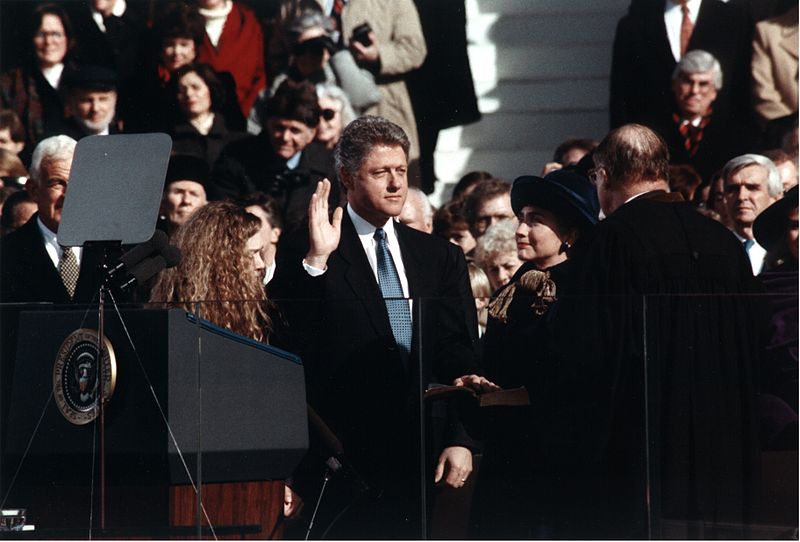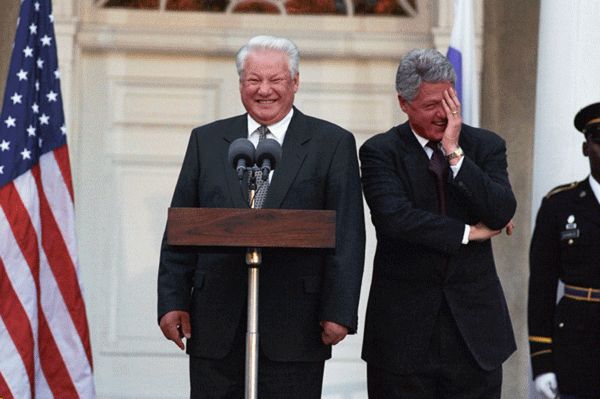| Home |
| Early Years |
| First Term |
| Second Term and Impeachment |
| Post-Presidency |
| Citations |
|
BILL CLINTON First Term
Clinton was inaugurated as the 42nd President of the United States on January 20, 1993.
On February 15, 1993, Clinton made his first address to the nation, announcing his plan to raise taxes to cap the budget deficit. Two days later, in a nationally televised address to a joint session of Congress, Clinton unveiled his economic plan. The plan focused on reducing the deficit rather than on cutting taxes for the middle class, which had been high on his campaign agenda. Clinton's advisers pressured him to raise taxes on the theory that a smaller federal budget deficit would reduce bond interest rates. On May 19, 1993, Clinton fired seven employees of the White House Travel Office, causing the White House travel office controversy even though the Travel Office staff served at the pleasure of the President, who could dismiss them without cause. The White House responded to the controversy by claiming the firings were done because of financial improprieties that had been revealed by a brief FBI investigation. Critics contended the firings had been done to allow friends of the Clintons to take over the travel business and that the involvement of the FBI was unwarranted. Clinton made a major speech to Congress regarding a health care reform plan on September 22, 1993, aimed at achieving universal coverage through a national health care plan. This was one of the most prominent items on Clinton's legislative agenda, and resulted from a task force headed by Hillary Clinton. Though at first well received in political circles, it was eventually doomed by well-organized opposition from conservatives, the American Medical Association, and the health insurance industry. However, John F. Harris, a biographer of Clinton's, states the program failed because of a lack of coordination within the White House. Despite the Democratic majority in Congress, the effort to create a national health care system ultimately died when compromise legislation by George J. Mitchell failed to gain a majority of support in August 1994. It was the first major legislative defeat of Clinton's administration. In November of 1993 Clinton implemented a Department of Defense directive known as "Don't Ask, Don't Tell", which allowed gay men and women to serve in the armed services provided they kept their sexuality a secret, and forbade the military from inquiring about an individual's sexual orientation. The policy was developed as a compromise after Clinton's proposal to allow gays to serve openly in the military met with staunch opposition from prominent Congressional Republicans and Democrats
On January 1, 1994, Clinton signed the North American Free Trade Agreement into law. The Clinton administration also launched the first official White House website, whitehouse.gov, on October 21, 1994.[71][72] It was followed by three more versions, resulting in the final edition launched in 2000. The White House website was part of a wider movement of the Clinton administration toward web-based communication. According to Robert Longley, "Clinton and Gore were responsible for pressing almost all federal agencies, the U.S. court system and the U.S. military onto the Internet, thus opening up America's government to more of America's citizens than ever before. On July 17, 1996, Clinton issued Executive Order 13011 – Federal Information Technology, ordering the heads of all federal agencies to utilize information technology fully to make the information of the agency easily accessible to the public.
|

